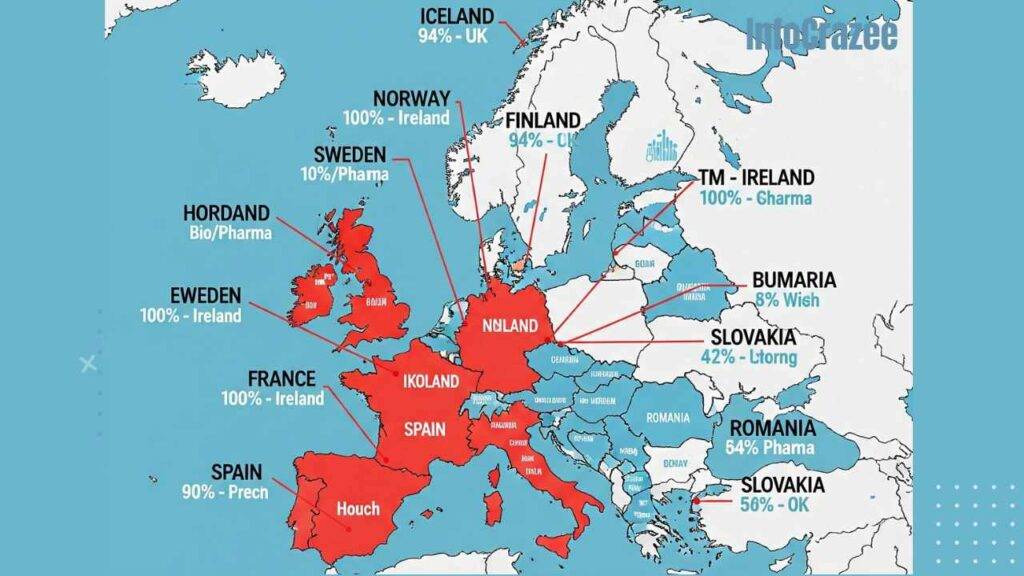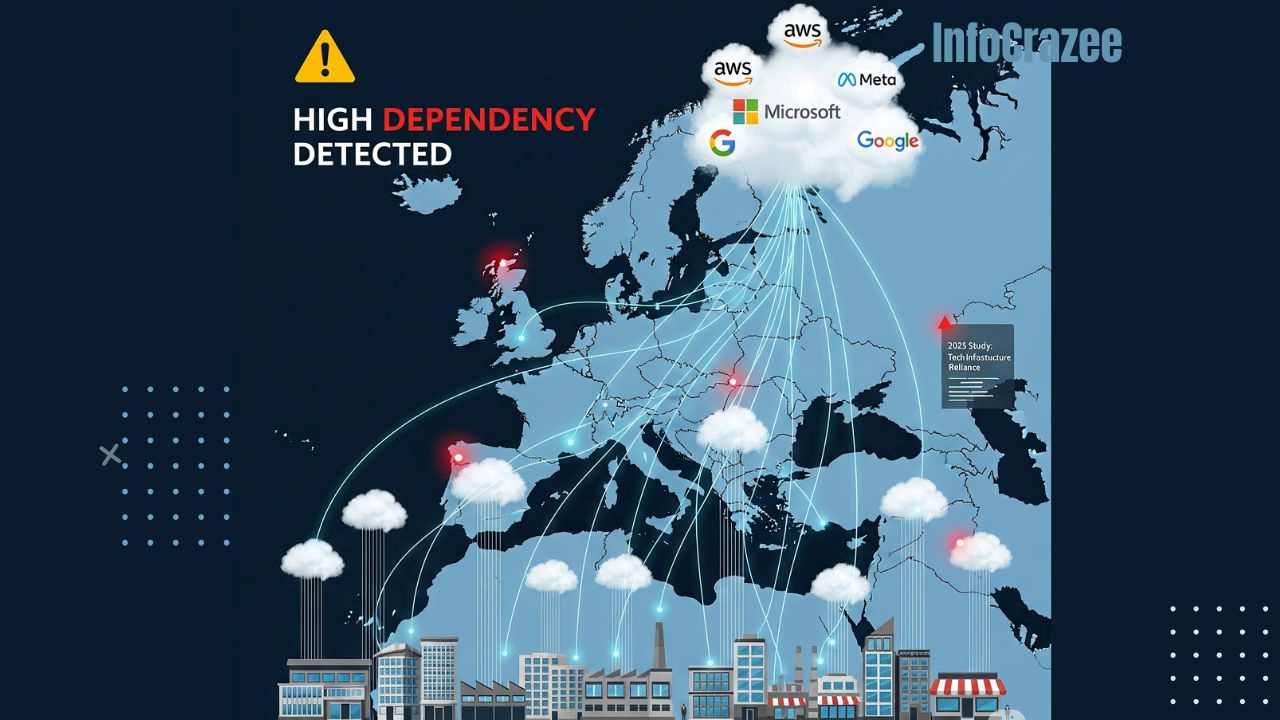Study Warns Most European Companies Depend on U.S. Tech Giants to Run Their Businesses
A new study has revealed a stark reality: about three in four European businesses rely heavily on U.S. technology giants for critical operations, raising alarms about digital sovereignty and vulnerability to external influence. The analysis, conducted by Swiss cloud provider Proton and published on August 5, 2025, underscores Europe’s deep dependence on American tech for email services, cloud infrastructure, and core business functions, exposing the continent to risks ranging from surveillance to economic instability.
Widespread Reliance on U.S. Tech
Proton’s study examined over 9,600 publicly listed European companies, using domain name system (DNS) searches to identify their reliance on U.S.-based tech providers like Microsoft, Amazon Web Services (AWS), and Google for email and cloud services. The findings are striking: 75% of European businesses depend on these tech giants, with countries like Iceland, Norway, Ireland, Finland, and Sweden showing over 90% reliance. In contrast, Bulgaria, Romania, and Slovakia have lower dependencies, at 16%, 39%, and 43%, respectively.

In the UK, the largest tech market in Europe valued at $1.1 trillion (€954 billion), 94% of software companies use U.S. tech stacks. France follows closely, with 80% dependency, while Spain’s critical sectors like energy and banking are entirely reliant on American providers. Ireland’s biotech and pharmaceutical industries also show 100% dependence, highlighting the pervasive grip of U.S. tech across key sectors.
Risks to Digital Sovereignty
The report warns that this reliance leaves Europe vulnerable to “warrantless surveillance,” AI training on proprietary data, and foreign pressure. “Digital sovereignty is an illusion when Europe’s infrastructure is controlled from abroad,” Proton stated. The dominance of U.S. providers like Microsoft and AWS, which hold 60-80% of the UK’s cloud market, stifles competition and exposes businesses to U.S. legal and geopolitical influence.
For instance, U.S. cloud providers could be compelled to share data under American laws, potentially compromising European companies’ sensitive information. The French government’s push for “strategic autonomy” reflects growing unease, as reliance on foreign tech leaves nations susceptible to external disruptions, including sanctions or policy shifts.
Industry and Regional Variations
The study highlights sector-specific dependencies. In the UK, 95% of banking and telecommunications companies rely on U.S. cloud services, while Spain’s energy and banking sectors are fully dependent. Conversely, industries like French banking, Spanish real estate, Portuguese telecommunications, and Irish automotive show less than 50% reliance, indicating some resilience in niche sectors. Larger companies, particularly those valued over €200 billion in the UK, France, and Spain, are entirely dependent, underscoring a trend where scale correlates with deeper U.S. tech integration.
Europe’s Tech Lag and Regulatory Challenges
Europe’s struggle to nurture its own tech giants exacerbates this dependency. The seven largest U.S. tech companies—Alphabet, Amazon, Apple, Meta, Microsoft, Nvidia, and Tesla—are 20 times larger and generate ten times more revenue than Europe’s top seven. While Europe boasts successes like Spotify and ASML, it lacks the scale and innovation velocity of U.S. counterparts. Only 8% of EU businesses are classified as “leading innovators,” compared to 16% in the U.S., according to the European Investment Bank.
Stringent EU regulations, such as GDPR and antitrust fines totaling billions against Google, Meta, and Apple, aim to curb Big Tech’s influence but may inadvertently hinder European innovation. Critics argue that these rules create a cautious business environment, contrasting with the U.S.’s “fail fast, fail often” culture that fuels rapid scaling.
A Call for Strategic Autonomy
The report has sparked calls for Europe to reduce its reliance on U.S. tech through investment in local infrastructure and innovation.
The EU is responding with initiatives like the AI Act and €1 billion annual investments through Horizon Europe and Digital Europe, aiming to bolster homegrown tech. However, building a competitive ecosystem will require overcoming cultural, regulatory, and investment barriers while fostering a risk-taking mindset to rival Silicon Valley’s dynamism.
As Europe grapples with its digital dependency, the Proton study serves as a wake-up call. Without decisive action, the continent risks remaining tethered to U.S. tech giants, compromising its economic and strategic autonomy in an increasingly digital world.






